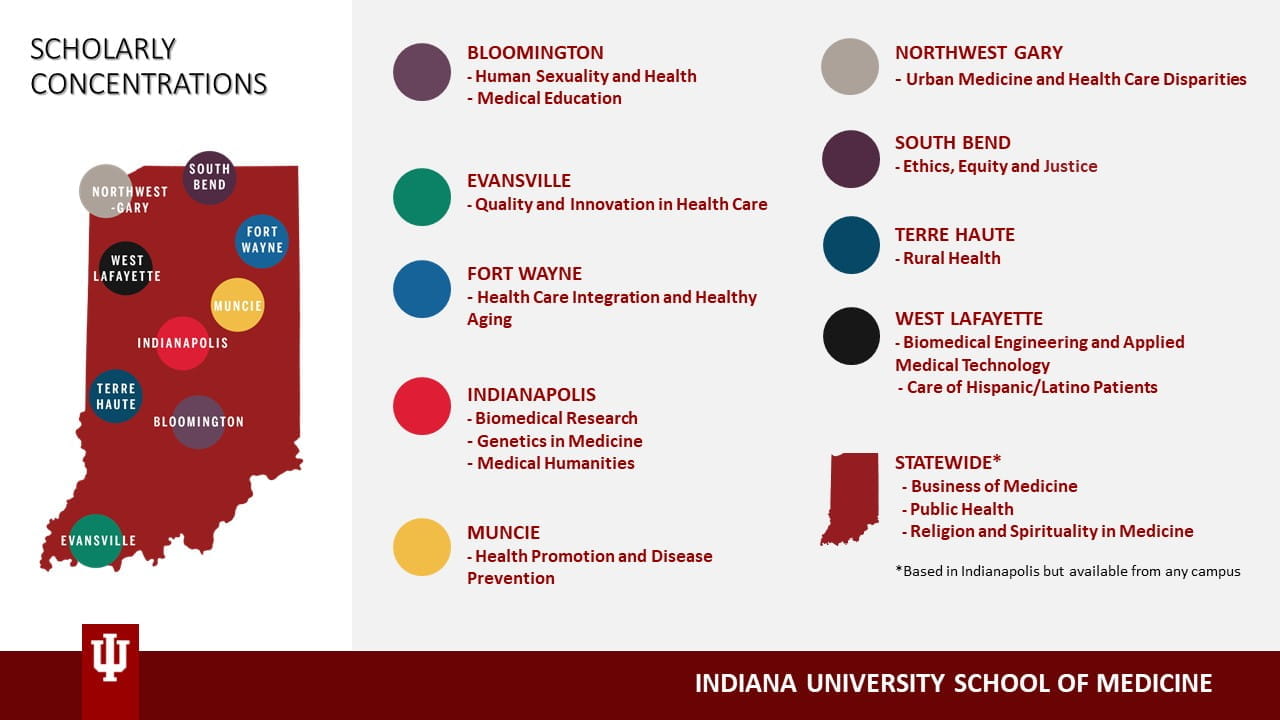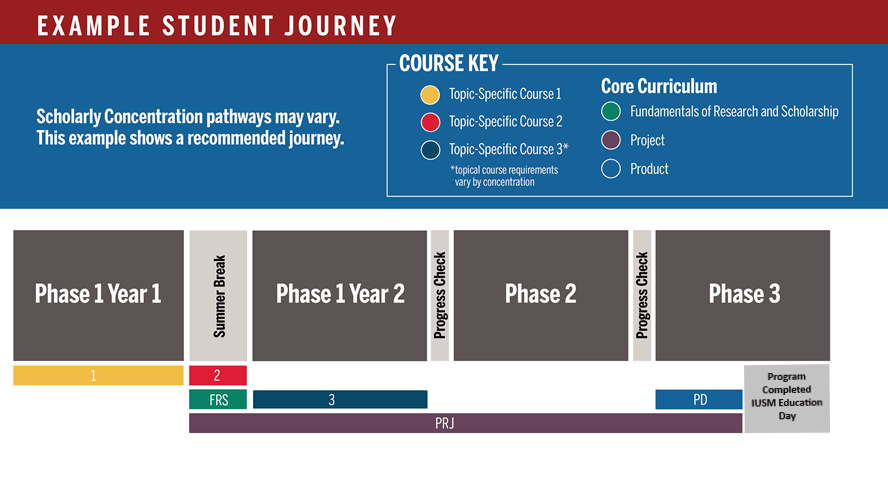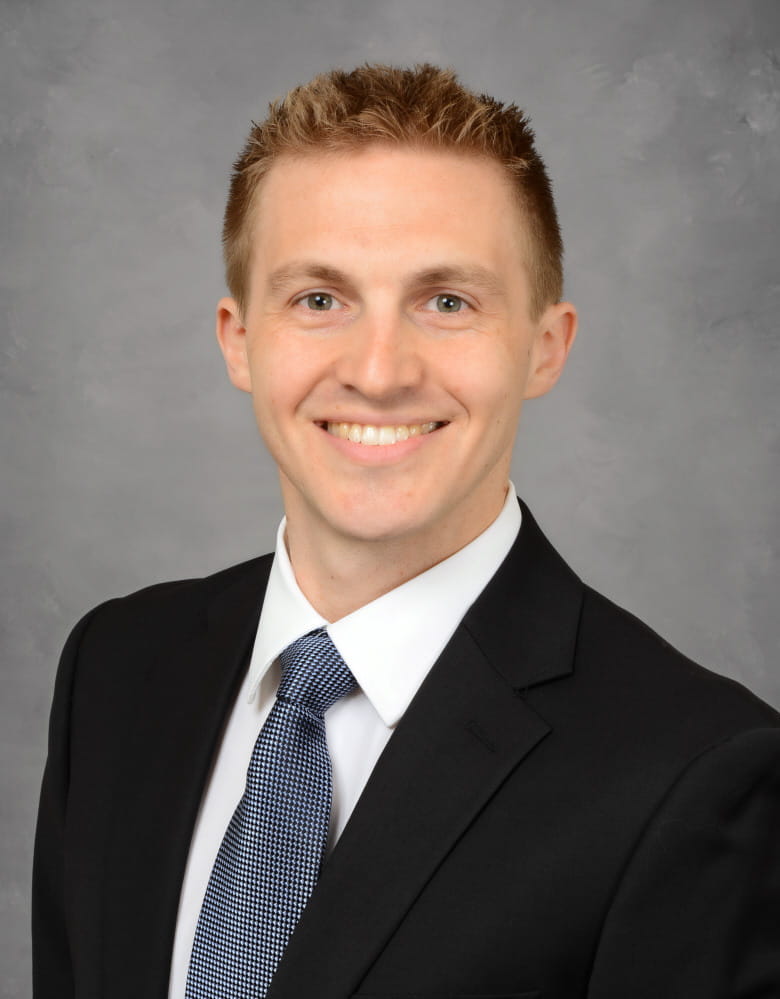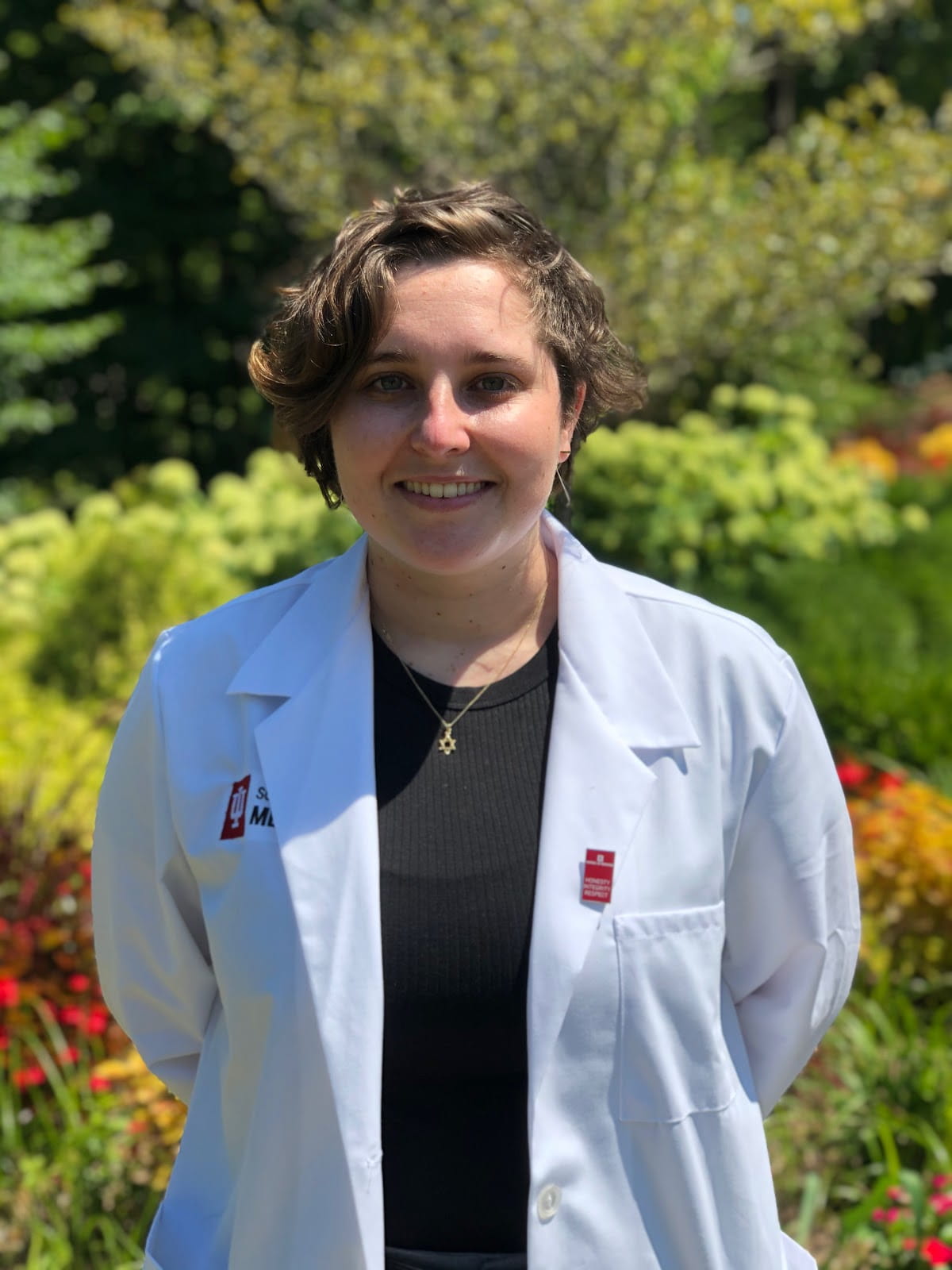The Scholarly Concentrations Program is an optional, co-curricular opportunity that takes place alongside and complements the core medical school curriculum. It empowers students to explore specialized topics of personal and professional interest such as public health, business of medicine, rural health, quality and innovation in health care, medical education and more.
Students engage in targeted coursework, complete a scholarly project, and produce a manuscript they submit for publication along with a poster presented at IU School of Medicine Education Day. Students benefit from:
- Skill development in research, communication, and scholarship
- Access to the statewide network of experts and resources through IU School of Medicine and other partners
- Unique mentorship opportunities
- A competitive edge for residency applications and long-term professional development
Concentration Benefits
Scholarly concentrations allow students to customize their education by choosing an area of emphasis that aligns with their interests and career goals. Scholarly concentrations enable MD students to gain knowledge and participate in multidisciplinary scholarship and community engagement — all without adding time or cost to their MD degree.
Students who complete a scholarly concentration:
- Earn eight weeks of non-clinical elective credit toward graduation
- Receive a designation on their academic transcript
- Gain material suitable for residency interviews and their CV
- Are recognized at graduation
Graduating students report that their concentration experiences are frequently discussed during residency interviews and serve as distinctive accomplishments.



